Tech
Tesla reports production problems, which causes deliveries to fall short of expectations
Published
4 months agoon
Tesla’s first-quarter car deliveries fell precipitously, marking a dismal start to the year for a business plagued by issues with the market and reputation.
The delivery figures released on Tuesday came amid a sluggish market for electric cars, rising borrowing costs, a slew of litigation targeting Tesla’s patents, and a scandal involving the company’s CEO, Elon Musk. In a January earnings call, Musk issued a warning, stating that Tesla would expand at a “notably lower rate” this year while it makes investments in a next-generation car that it intends to begin producing in 2025.
According to Tesla, it delivered 387,000 cars to consumers in the first quarter, a 20% decrease from the previous quarter and a more than 8% decrease from the same period last year.
According to Wedbush Securities analyst Dan Ives, prior to Tuesday’s news, Wall Street analysts had predicted that Tesla would post 443,000 deliveries for the quarter. On Tuesday, shares of Tesla dropped 4.9%.
The business attributed the delay, at least in part, on the move to early production of the upcoming Model 3 car, problems with shipping across the Red Sea, and possible arson at its Berlin plant.
For Tesla’s “ugly delivery number,” Deepwater Asset Management analyst Gene Munster cited the overall state of the economy as well as a decline in EV confidence. Munster tweeted that financing more expensive electric cars has become more costly because of rising interest rates. He also noted that “the excitement around [electric vehicles] has cooled, which further dampens sales.”
However, he added that Tesla remains “on the right track.”
Ives compared the first quarter of the business to “a train wreck into a brick wall.” According to Ives, Musk must now design a turnaround as the business pushes forward with its next car.
“Let’s face it: This was an absolute disaster of a first quarter that is difficult to explain away, even though we were expecting a bad one,” Ives stated. “We see this as a turning point in the Tesla narrative where Musk has the opportunity to either reverse the black eye 1Q performance or turn things around. If not, it appears that there may be some gloomier times ahead, which might upend the Tesla story in the long run.
The electric vehicle manufacturer, whose shares fell more than 20 percent in the first quarter, dropped prices throughout 2023 to keep up with demand, but analysts said such reductions were insufficient to get over the challenges it faced in the first quarter of 2023.
Karl Brauer, an executive analyst with the auto research firm ISeeCars.com, described it as “death by 1,000 cuts.” Although Musk “has never had a demand problem,” there have been more signs in the last year or so that he is making more cars than the market is willing to buy.
Tesla reported that it produced 433,000 cars in the first quarter, which is 46,000 more than it shipped.
Other broader market forces are working for Tesla. Although the United States continues to see greater growth in sales of electric cars than gasoline cars, interest in these vehicles has recently begun to decline due to a lack of infrastructure for charging, among other reasons. Some automakers, like Mercedes-Benz, have lowered their short-term electrification goals or postponed them.
However, BYD, a Chinese manufacturer of electric vehicles, surpassed Tesla in terms of quarterly sales of electric vehicles last year.
The company’s issues are exacerbated by Tesla’s declining sales figures. Regulators are also paying it more attention because of its driver-assistance program, Autopilot. Nearly every automobile the business has ever made was included in the 2 million vehicles that were recalled last year due to worries that the technology had sufficient safeguards to prevent driver abuse. The National Highway Traffic Safety Administration’s extensive examination of the technology led to the recall, which was carried out via remote update.
The Washington Post released an investigation a few days before the recall announcement, which showed that Autopilot was involved in at least eight fatal or seriously injured crashes in places where the software was not supposed to be employed.
cases concerning the company’s Autopilot software are also being filed. These cases seek to determine whether the software should share any of the blame for malfunctions in vehicles driven by the driver or whether the driver bears the entire responsibility. This month, a jury will decide whether to try Tesla for wrongful death. The case concerns a 2018 Tesla on Autopilot that crashed into a median on Highway 101 in Northern California while the driver was reportedly not paying attention.
Thus far, the business has been successful in avoiding liability: in a lawsuit concerning Autopilot’s purported involvement in a fatal incident in Riverside, California, a jury last year held Tesla not guilty.
Munster of Deepwater Asset stated before Tuesday’s announcement that neither Musk nor investors seemed to be affected by Tesla’s legal troubles. To further solidify his support for Full Self-Driving, Tesla’s top driver-assistance system, Musk mandated last month that staff members install and demonstrate the most recent version to clients before closing a deal.
In an email to his employees that was initially obtained, Elon Musk stated, “Going forward, it is mandatory in North America to install and activate FSD V12.3.1 and take customers on a short test ride before handing over the car.” The effectiveness of (supervised) FSD is almost unknown. Although I am aware that this may delay delivery, it is still an unreasonable condition.
According to a poll conducted by market research firm Caliber and sent to Reuters, Tesla’s “consideration score” dropped to 31% in February from a peak of 70% in November 2021, when the company began monitoring consumer interest in the brand. A portion of the study referenced Musk’s contentious background. One of the richest persons in the world, Elon Musk, has courted controversy in the last year by endorsing strict immigration policies, encouraging antisemitic discourse, pushing conspiracy theories, and denouncing liberal causes as a “woke mind virus.”
His divisive remarks have turned off advertisers and users from his owned social media network, X, which was once known as Twitter.
Musk claims that Tesla is “between two major growth waves” and that the company’s current sales problems are just the result of economic cycles.
Regarding Tesla’s poor sales, Brauer stated that the company’s legal troubles and Musk’s demeanor aren’t the main causes of the drops. However, it “certainly isn’t helping,” he declared.
He claimed that “those factors are only leading to all the challenges.”
An inquiry for comment from Tesla was not answered.
Sahil Sachdeva is the CEO of Level Up Holdings, a Personal Branding agency. He creates elite personal brands through social media growth and top tier press features.

You may like
Tech
Tech Apocalypse: How a Global Outage Brought Businesses to Their Knees
Published
5 days agoon
July 22, 2024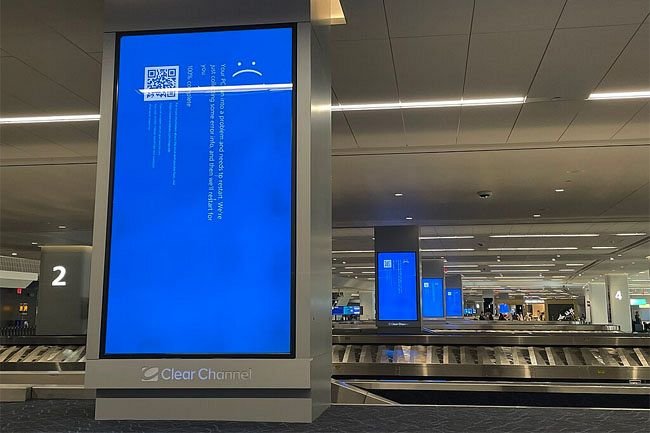
Friday’s Global Software Outage Paralyzes Business, Healthcare, Tech, and Government Sectors in Less Than 12 Hours: Unraveling the Crash, Recovery Status, and Ongoing Impact
911 Centers and Transportation Services Plagued by Disruptions Late Thursday Night and Early Friday
Overnight from Thursday to Friday, 911 services in multiple states, including Alaska and Arizona, experience disruptions, while hospitals report technology issues, as observed by nurses on duty.
Between 2 and 3 a.m., the Federal Aviation Administration (FAA) grounds all Delta and American Airlines flights, followed shortly by United and Allegiant Airlines, due to a widespread outage.
Spirit Airlines confirms its flight reservation system is also impacted by the outage. Later, between 5 and 6 a.m., public transit systems in the Northeast, including Washington, DC, begin reporting delays, affecting trains and buses managed by the Washington Metropolitan Area Transit Authority.
Meanwhile, in New York City, the Metropolitan Transportation Authority notes temporary disruptions in customer information systems, although train and bus services continue without interruption.
By 5:30 a.m., CrowdStrike, a prominent US cybersecurity firm, acknowledges software crashes affecting Microsoft Windows operating systems, crucial for blocking hacking threats for many Fortune 500 companies.
Between 6 and 7 a.m., the White House Launches Investigation as Global Banks Report Operational Issues
A spokesperson from the White House National Security Council told CNN they’re investigating an incident that happened, but they don’t think it was on purpose. Some big banks worldwide, like in Australia and South Africa, had problems with their services. In Portland, the mayor declared an emergency because the 911 system that handles emergency calls wasn’t working right. United Airlines said they’re starting to fly some planes again.
Between 8 and 9 a.m., flights begin again, but airports are preparing for a hectic day ahead.
Delta Air Lines has restarted some flights and offered travel waivers to affected passengers.
At Atlanta’s Hartsfield Jackson International Airport, systems are back online, and extra customer service staff are on hand to handle the challenges. Officials there are asking passengers to remain patient and understanding.
In Charlotte Douglas International Airport, a hub for American Airlines, travelers are advised to confirm their flight details before heading to the airport. Meanwhile, Miami International Airport officials caution that US Customs and Border Protection operations are slowed down, affecting international arrivals which are being processed manually.
From 9 a.m. to noon, federal agencies begin to take action, and President Biden receives a briefing on the situation.
Shortly before 9 a.m., Alaska State Troopers and the Phoenix Police Department announce that their 911 centers are operational again after experiencing disruptions.
Portland’s Computer Aided Dispatch system also resumes operations at 9 a.m. The mayor’s office assures the community that 911 services were never affected, and essential public safety services like Police and Fire & Rescue remain fully operational.
The Federal Communications Commission (FCC) acknowledges reports of a system outage affecting 911 services and is collaborating with federal agencies to assess the situation.
President Biden receives a briefing on the CrowdStrike outage and his team is coordinating with CrowdStrike and affected organizations. Federal agencies begin escalating their involvement and reporting disruptions.
The US Department of Homeland Security states it is working with CrowdStrike, Microsoft, and other partners to evaluate and address the outages.
Social Security offices close to the public due to anticipated longer wait times on their national 800 number.
The US Department of Justice acknowledges some impact from the outage and is implementing workarounds, although no estimated restoration time is provided.
UPS and FedEx report being affected, with UPS noting operational airlines and road deliveries, though delays are possible.
CrowdStrike’s CEO acknowledges the situation, clarifying it was not a cyber attack but an issue with a Falcon content update for Windows Hosts.
During late morning through early afternoon, appointments with doctors and at the DMV are cancelled.
The Massachusetts Department of Transportation informs that Registry of Motor Vehicle operations are affected, with similar impacts reported in Georgia, North Carolina, Texas, and Tennessee.
Simultaneously, multiple healthcare and hospital systems across the nation, including Mass General Brigham, Penn Medicine, Northwell Health, and Emory Healthcare, acknowledge being affected by the global outage. Some hospitals experience service delays while others cancel non-urgent surgeries and medical appointments. Cancer centers such as Dana-Farber Cancer Institute and Memorial Sloan Kettering Cancer Center adjust their schedules accordingly.
In British Columbia, the Provincial Health Services Authority announces their health system has also been impacted and they are implementing contingency plans to ensure patient care continues uninterrupted.
Later in the afternoon, further disruptions continue to affect medical services.
By around 4 p.m., the New York Blood Center, which supplies blood to about 200 hospitals in the Northeast, initiates an emergency driving operation to distribute blood due to delays in transporting test tubes by air.
Blood Centers of America, relying on shipping services like FedEx, also reports delays in test result reporting. They note that despite elective surgery cancellations reducing blood usage, ongoing delays could pose challenges if they persist.
Blood Assurance, serving hospitals across Southeast states, including Tennessee and Georgia, experiences postponed shipments of critical platelets due to flight disruptions caused by the outage. They appeal to the community for blood donations to meet demand.
CrowdStrike CEO Kurtz reaffirms commitment to transparency regarding the IT outage and pledges measures to prevent future incidents, as stated on the company’s website.
On Saturday morning, extensive delays affect numerous flights.
On Saturday morning, Microsoft states that the outage affected approximately 8.5 million Windows devices, which represents less than 1% of all Windows machines. Microsoft acknowledges that the widespread economic and societal impacts highlight the reliance of enterprises on CrowdStrike for critical services.
Various sectors continue to experience repercussions from the outage. Despite airlines largely resuming operations, they caution passengers to expect ongoing disruptions to flight schedules.
By noon on Saturday, FlightAware reports over 3,375 flights delayed and more than 1,200 canceled across the United States. Atlanta’s Hartsfield-Jackson International Airport, the busiest in the nation, remains heavily affected, with Delta Air Lines canceling over 500 flights and United Airlines canceling nearly 300 flights.
Tech
X Under Fire: EU Alleges Misleading Practices by Elon Musk’s Company
Published
2 weeks agoon
July 15, 2024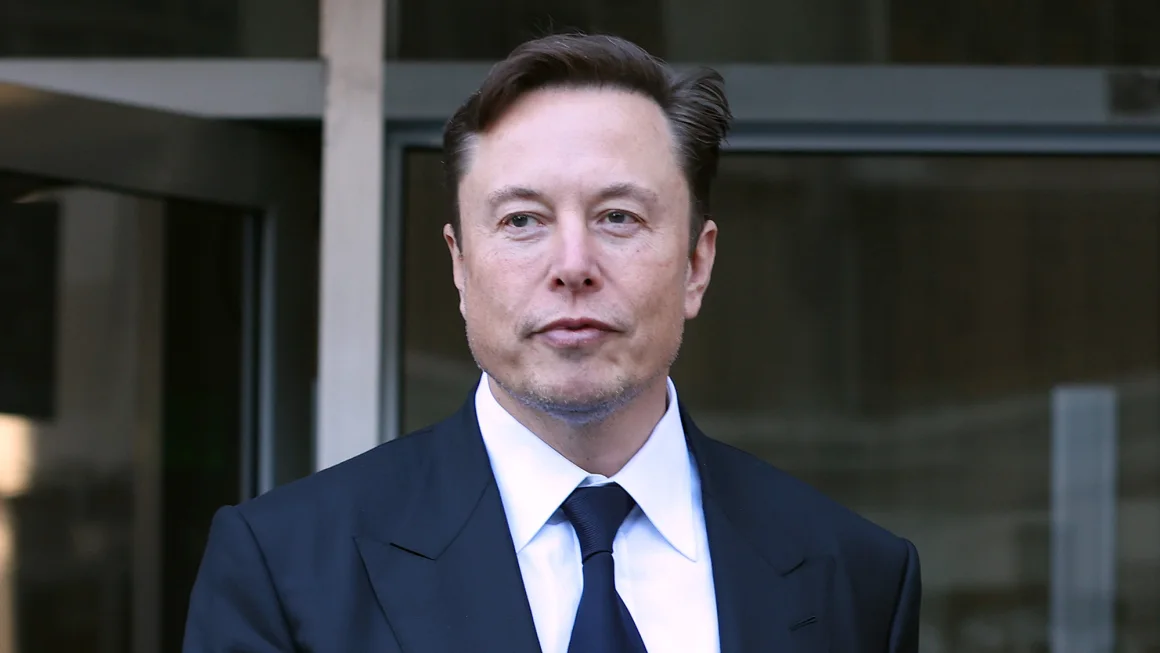
European regulators have accused Elon Musk’s platform X of breaching the Digital Services Act, alleging the platform misleads users and engages in several other violations.
Margrethe Vestager, a senior official at the European Commission, announced preliminary findings indicating that X fails to comply with transparency requirements. The platform allegedly uses “dark patterns” to deceive users, does not maintain an adequate ad repository, and restricts access to data for researchers.
The EU highlighted concerns over X’s verification system, stating it misleads users by allowing anyone to obtain a “verified” status. Evidence suggests that this blue check is being exploited by malicious actors to create confusion among users.
Should these preliminary findings be substantiated, X could face fines of up to 6% of its global annual revenue.
Thierry Breton, another senior Commission official, remarked, “Blue checks used to signify trustworthy sources; now they mislead users and violate the DSA.”
The Digital Services Act, effective since August, prohibits “dark patterns,” which manipulate user choices regarding data sharing. This investigation follows inquiries initiated by EU officials last year amid rising concerns over Hamas-affiliated accounts on the platform after the October 7 attacks against Israel.
The EU is also examining X’s content moderation practices to determine compliance with regulations against the spread of illegal content and misinformation.
Tech
AI’s Unexpected Impact: Revolutionising Assistance for People with Disabilities
Published
3 weeks agoon
July 9, 2024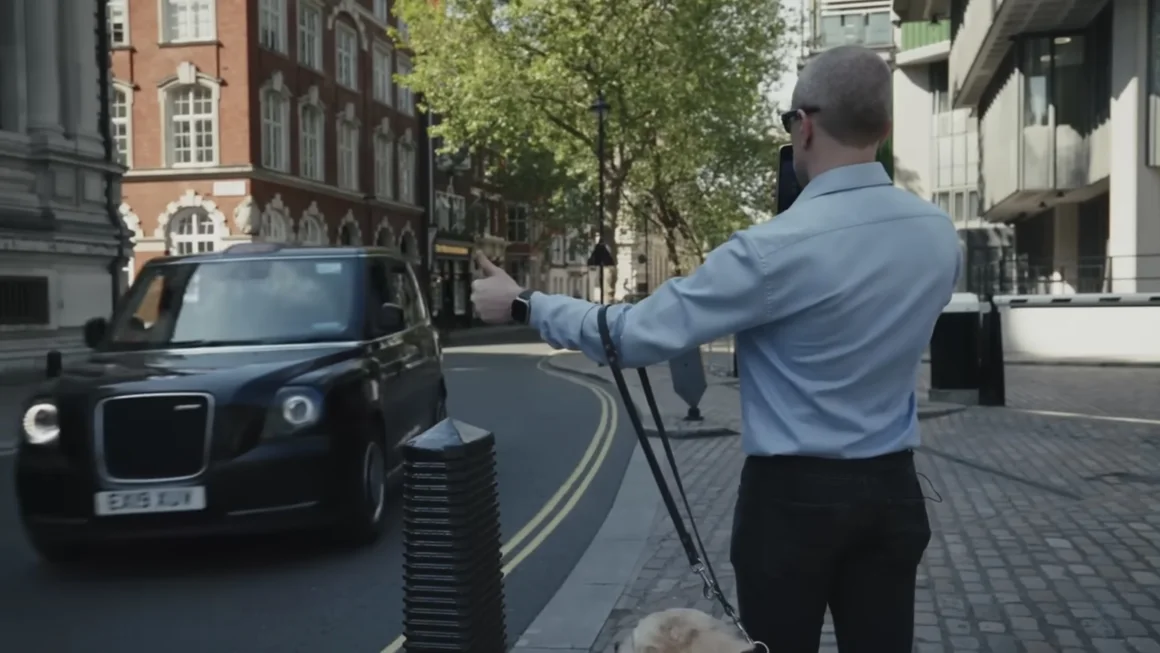
Matthew Sherwood, blind for over 15 years, juggles family life, a successful investing career, and relies on his guide dog, Chris, for navigation. Despite his achievements, everyday tasks like shopping remain challenging without assistance.
Traditionally, Sherwood has used the Be My Eyes app, connecting him with sighted volunteers via live video for tasks such as identifying clothing colors or checking expiration dates on groceries. However, advancements in AI technology are promising newfound independence.
In a groundbreaking partnership with OpenAI, Be My Eyes integrated AI capabilities to describe surroundings in real-time, reducing reliance on human volunteers. OpenAI’s demo showcased a user successfully hailing a taxi, guided precisely by the AI-powered app. Similarly, Google recently introduced comparable AI features in its “Lookout” app, aimed at aiding visually impaired users.
Major tech giants like Apple and Google have introduced a range of AI-driven tools designed to enhance the lives of people facing various challenges. These innovations include eye-tracking technology that allows physically disabled users to control their iPhones and detailed voice guidance on Google Maps for blind users.
Since the impressive launch of ChatGPT over a year ago, it’s become evident that AI is reshaping our world, transforming how we work, communicate, and perceive reality. However, for individuals with disabilities, AI represents a potential life-changing opportunity of a different magnitude.
Matthew Sherwood highlights this transformative potential: “In the past, blind individuals in business often relied on administrative assistants to read for them. Now, with AI, there’s a new level of empowerment… This technology isn’t just great; it’s an opportunity for blind individuals to gain employment, compete in business, and achieve success.
The Advantages of AI in Enhancing Accessibility
Over the years, tech companies have integrated early AI technologies into their products to enhance accessibility, such as automated closed captioning and screen readers. However, recent advancements in AI, driven by extensive datasets and powerful computing systems, are dramatically expanding possibilities in assistive technology.
For instance, developing AI tools that reliably assist blind individuals in hailing taxis requires sophisticated image recognition capabilities, which are refined through extensive training on vast datasets. Similarly, Google has enhanced its tool for blind and low-vision users by integrating generative AI technology, introducing features like a “question and answer” function to further improve accessibility.
Eve Andersson, Google’s senior director of product inclusion, equity, and accessibility, emphasized that while the promise of AI has been recognized for years, its recent advancements in quality are pivotal for integration into products. Generative AI tools are particularly promising in accessibility applications because they excel in understanding and generating information in diverse formats like text, audio, photos, and videos. This versatility enables AI to serve as a bridge, converting, for example, audio content into written text for users with hearing impairments.
Andersson pointed out, “Accessibility needs vary widely, but many disabilities involve how individuals perceive information—whether it’s related to hearing, vision, motor skills, speech, or cognitive abilities. AI excels in translating between different modes of information, making it invaluable for addressing these diverse needs.”
Creating AI Systems that Foster Inclusivity
Ongoing investment is crucial to ensuring that AI systems effectively cater to diverse user needs. Given that AI models learn from human-generated data, concerns have been raised about their potential to perpetuate biases observed in society. Early instances have highlighted issues such as AI image generators struggling with racial concepts or algorithms displaying gender-biassed job advertisements.
To mitigate these risks, a coalition of major tech companies including Apple, Google, and Microsoft, has collaborated with researchers at the University of Illinois Urbana-Champaign. Together, they are developing a comprehensive training dataset for AI speech recognition tools that encompasses a wide range of speech patterns. This initiative, known as the Speech Accessibility Project, involves gathering recordings from volunteers affected by conditions like Parkinson’s, Down Syndrome, and ALS, which can impact speech.
Through this effort, which has amassed over 200,000 recordings to date, researchers have enhanced the accuracy of a sample speech recognition tool. Initially prone to misunderstanding speech 20% of the time, it now does so only 12% of the time following training on the diverse dataset. This progress underscores the importance of inclusive data practices in developing AI technologies that serve all users effectively.
Clarion Mendes, a speech language pathologist and clinical assistant professor leading the project, underscores the importance of incorporating diverse speech patterns into machine learning systems. According to Mendes, this inclusivity is crucial for improving the systems’ ability to understand individuals beyond those with standard speech patterns typically found in audiobooks.
Mendes also highlights the profound impact of assistive technology on individuals facing communication barriers, noting that many highly qualified individuals struggle to secure employment due to these challenges. Assistive technologies can significantly enhance independence by reducing reliance on others and streamlining tasks, thereby enabling individuals to engage more fully in hobbies and professional endeavours.
Eve Andersson further emphasises the business rationale behind investing in AI for accessibility, noting that inclusivity not only aligns with ethical imperatives but also opens up opportunities to serve diverse markets, including government and educational institutions. She stresses that technology has the potential to level the playing field, ensuring that everyone can benefit from its advancements.
Tech
Meta’s ‘Pay or Consent’ Model Sparks European Law Controversy
Published
3 weeks agoon
July 3, 2024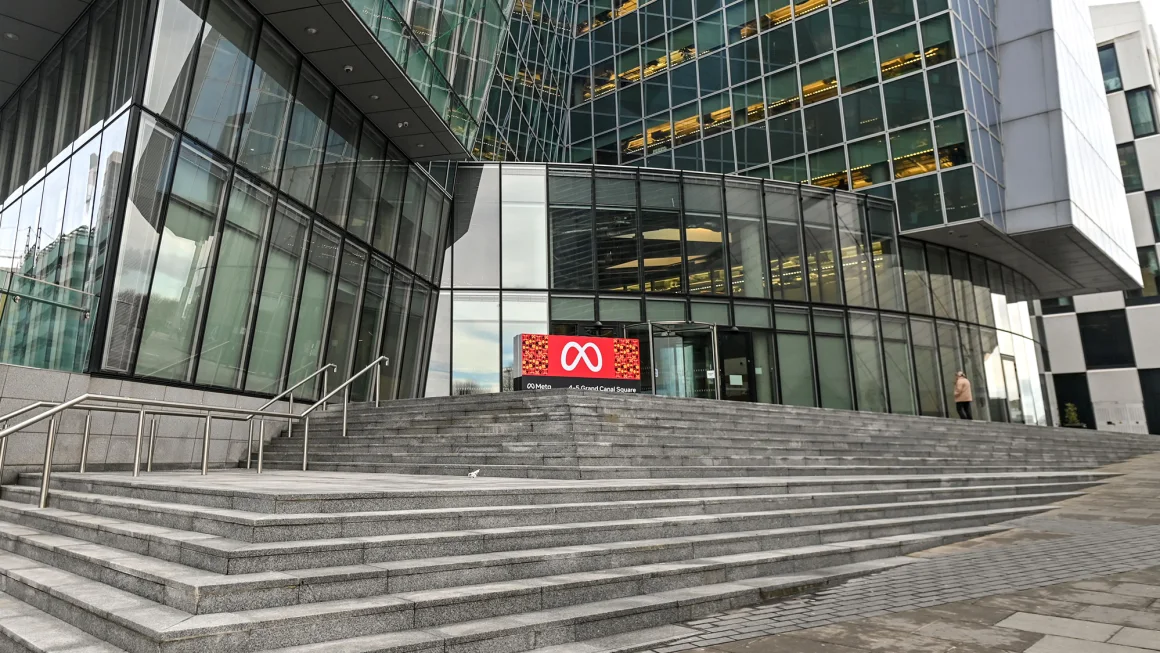
Last year, Meta introduced a service named ‘Subscription for no ads,’ offering European users of Facebook and Instagram an ad-free experience for up to €12.99 ($14) per month. Alternatively, users could opt for versions with personalized ads.
On Monday, the European Commission preliminarily criticized this binary choice, arguing it coerces users into consenting to the use of their personal data without providing a less personalized but equivalent alternative.
If the Commission’s findings hold, Meta could face a fine up to 10% of its global annual revenue under the Digital Markets Act, potentially totaling $13.5 billion based on 2023 results. Meta, however, contests these allegations, asserting its service aligns with European legal precedent and complies with the DMA.
This announcement follows the Commission’s recent accusations against Apple for allegedly violating the DMA by restricting app developers from directing consumers to lower-cost alternatives. Alphabet, parent company of Google, is also under investigation.
The DMA, effective since March, mandates that dominant online platforms, termed gatekeepers, offer users more choices and create fairer conditions for competition. These platforms commonly gather personal data across their services and third-party sources for digital advertising purposes.
In a recent statement, Margrethe Vestager, the European Commissioner overseeing competition policy, expressed concerns over Meta’s extensive collection of personal data from millions of EU citizens spanning several years. She emphasized the need to empower citizens by enabling them to control their data and opt for less personalized advertising experiences.
Michael Koenig, a senior official at the Commission, emphasized that Meta should provide users with an alternative to fully personalized ads that does not rely on personal data, ensuring a less personalized but still available option. He suggested Meta could maintain a third option of ad-free subscriptions or a fourth option with premium features.
The Commission plans to conclude its investigation into Meta by late March of the following year.
Tech
Abu Dhabi’s Ambitious Ascent: From Oil Wealth to AI Leadership, Partnering with the US Marks Just the Beginning
Published
1 month agoon
June 26, 2024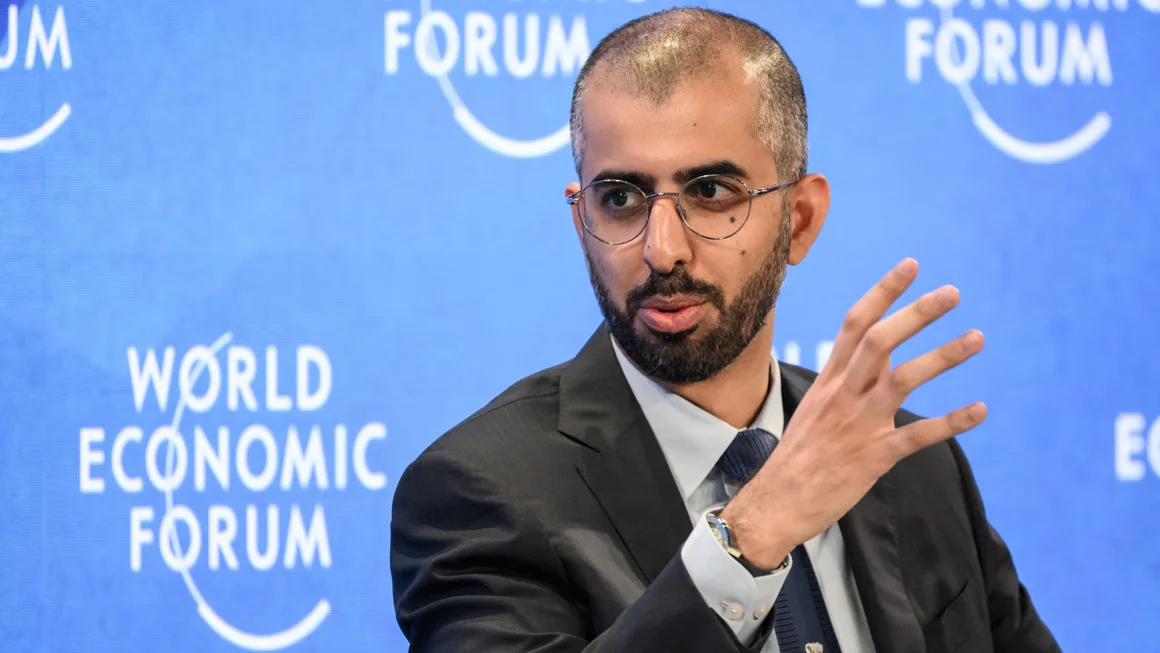
Abu Dhabi, known for its vast oil reserves, is aggressively pursuing a leadership role in artificial intelligence (AI) under the guidance of Omar Al Olama, the world’s first minister dedicated to AI strategy. Recently, Microsoft’s $1.5 billion investment in G42, an AI group chaired by a prominent member of the ruling family, underscored the UAE’s alignment with US interests amid global tech supremacy struggles.
The move is seen as a strategic maneuver by the Biden administration to counter China’s influence in the region. G42, a conglomerate spanning sectors like data centers, healthcare, and biotechnology, is pivotal to Abu Dhabi’s economic diversification plans, aiming to reduce oil dependency. By 2030, AI initiatives could contribute $96 billion to the UAE economy, nearly 14% of its GDP.
Minister Olama, overseeing digital economy and remote work applications, aims to position the UAE as a global AI leader by 2031, emphasizing collaboration with international partners to navigate market dynamics effectively.
The UAE has embarked on a comprehensive national strategy to achieve its AI ambitions, focusing on key sectors like energy and logistics. Central to this strategy is the development of a robust AI ecosystem and the attraction of top global talent. The country has initiated AI training programs for public officials, while Dubai aims to educate one million citizens in prompt engineering, enhancing AI model capabilities to deliver superior results.
By September, the number of people engaged in AI and related industries in the Gulf country surged to 120,000, up from 30,000 just two years earlier, as highlighted by Minister Al Olama.
Taking Stands
In navigating its international relations, the UAE has often prioritized its alliance with the US over relations with Washington’s competitors. Earlier this year, a US Congressional committee urged the Commerce Department to investigate G42’s alleged ties to Chinese military and intelligence entities, although G42 denied any such connections. In response to US concerns, G42, backed by a significant Microsoft investment, shifted away from Chinese hardware suppliers like Huawei to collaborate with US firms.
Minister Olama acknowledged the US stance, stating, “The US makes it clear that ‘choosing sides’ is necessary in certain technologies.” Historically, the UAE has maintained a delicate balance in its foreign policy, collaborating closely with the US on defense while also engaging with other global partners.
The Biden administration, emphasizing AI’s critical role in economic and national security, has enacted stringent measures, including export controls on AI and semiconductor technologies, aimed at curbing China’s progress in these fields.
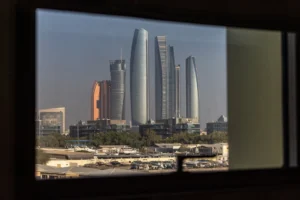
The US government has taken steps to control the flow of advanced semiconductor technology to prevent China from accessing the latest AI capabilities through Middle Eastern nations, Reuters reported. Nvidia, a major player in the industry, disclosed in an August 2023 filing that it was notified by US authorities about additional licensing requirements for its products in certain Middle Eastern countries.
In response to the partnership between G42 and Microsoft, some US lawmakers have expressed concerns about potential vulnerabilities of American technology to Chinese espionage in the UAE. Despite these concerns, Minister Olama reassured that the UAE remains a trustworthy partner. He emphasized the presence of cutting-edge American technology within the UAE while speaking in his personal capacity, emphasizing the nation’s commitment to responsible use and collaboration in AI advancement.
Embracing Technological Leadership
Abu Dhabi’s Technology Innovation Institute made waves in late 2023 with the launch of Falcon10B, a cutting-edge large language model (LLM) that surpassed offerings from tech giants like Google and Meta in certain benchmarks. According to James Lewis from the Center for Strategic and International Studies (CSIS), Falcon solidifies the UAE’s competitive stance in the global AI race.
Further enhancing its AI capabilities, a collaboration involving Abu Dhabi’s Mohamed bin Zayed University of Artificial Intelligence, Cerebras Systems from Silicon Valley, and Inception of G42 introduced Jais in October 2023. This generative AI model is bilingual, trained in Arabic and English, with potential applications for developing LLMs in other languages currently underrepresented in mainstream AI.
Setting themselves apart from closed platforms like ChatGPT and Google’s Gemini, Falcon and Jais are open-source, making their code accessible for modification and use by anyone. Abu Dhabi’s decision to open-source these technologies not only underscores its commitment to technological inclusivity but also positions it as a supportive partner for developing nations lacking the resources to develop their own AI tools.

Minister Olama emphasizes the UAE’s commitment to developing AI systems for countries that lack the capacity to do so independently. This initiative aims to foster global accessibility to advanced technology.
Some analysts view the UAE’s substantial oil wealth as pivotal in funding extensive AI infrastructure, positioning the nation as a future tech leader. James Lewis underscores the financial advantage this affords them.
In response to rising concerns over AI risks, Olama advocates for an international coalition to regulate AI development and usage. Highlighting the potential threats, a US State Department report warned of extreme risks posed by advanced AI systems, prompting global attention.
Olama expresses specific concerns about deepfakes leading to truth and political crises, as well as the potential misuse of AI in biotechnology weapons. While cautious about alarmism, he stresses the need for robust safeguards against such risks.
Tech
TikTok Intensifies Criticism Against Biden Administration Amid Potential Ban
Published
1 month agoon
June 21, 2024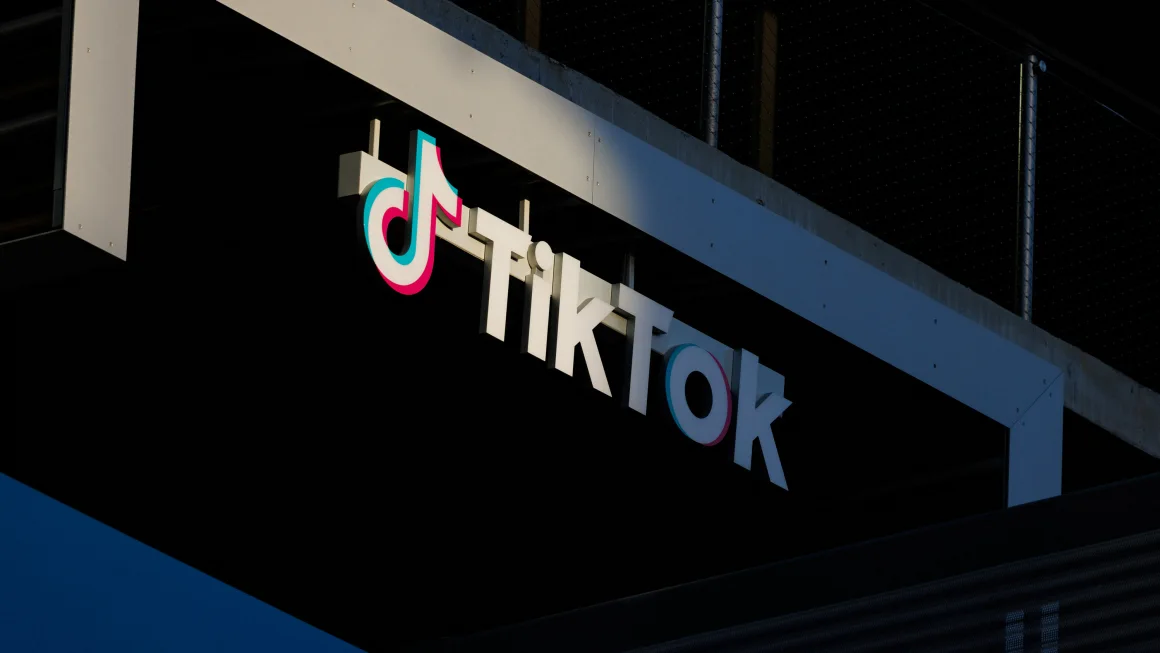
TikTok Steps Up Legal Battle Against US Government Over Potential Ban
In a recent legal move, TikTok has escalated its confrontation with the Biden administration regarding a law that could lead to its ban in the US. The social media giant argues, through a court filing, that forcing it to find a new owner could isolate American users on a content ‘island’, disconnected from global TikTok content. TikTok revealed details of a draft agreement with the US government aimed at addressing national security concerns, which the company claims was discarded in favor of legislation it believes violates First Amendment rights.
The filing represents TikTok’s initial strategy in what could be a pivotal case affecting the app’s future and broader implications for online free speech. TikTok asserts that divesting from its Chinese parent company ByteDance by the 2025 deadline, as mandated by the law signed by President Biden, is not feasible technologically, commercially, or legally.
Furthermore, TikTok contends that the challenged legislation prohibits necessary data-sharing agreements that would allow US users access to international TikTok content. This argument is echoed by a group of TikTok content creators who argue that the law restricts their ability to express themselves freely, impacting their First Amendment rights.
Central to TikTok’s defense is the revelation of the draft agreement with the Committee on Foreign Investment in the United States (CFIUS), highlighting it as a less restrictive alternative that could have met national security goals without resorting to divestiture or a ban. TikTok claims the agreement was never finalized despite extensive negotiations and meetings with US officials.
The filing also includes details of ‘Project Texas’, TikTok’s plan to segregate US user data, with provisions allowing US government oversight to ensure compliance with security measures. TikTok asserts it has already invested $2 billion in implementing these safeguards.
The legal battle underscores TikTok’s stance against allegations of compromising user data to the Chinese government, which US officials have raised concerns about in closed-door briefings. TikTok denies these claims and criticizes the legislative process as flawed and rushed.
As the case unfolds, the outcome could shape not only TikTok’s future in the US but also set precedents for how digital platforms navigate national security and free speech challenges in the future.
Tech
Temporary Pause: McDonald’s Halts AI Drive-Thru Ordering
Published
1 month agoon
June 19, 2024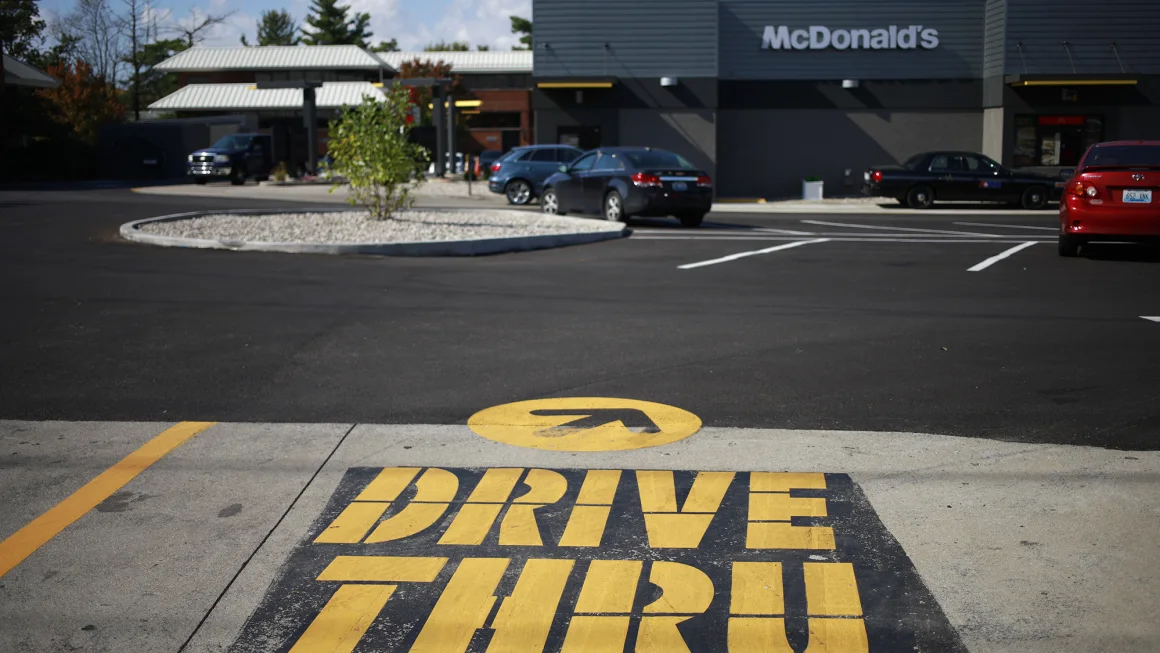
McDonald’s affirms IBM as a valued partner but hints at exploring alternative AI providers following a temporary halt in AI drive-thru ordering at their global locations.
In 2021, McDonald’s and IBM joined forces to introduce Automated Order Taking (AOT) technology as part of McDonald’s growth strategy, “Accelerating the Arches.” This initiative aimed to simplify and expedite the ordering process for customers and restaurant teams alike. IBM praised AOT for its advanced capabilities, citing its speed and accuracy as standout features that enhance efficiency in demanding operational environments.
The partnership highlighted a commitment to innovation in the quick-service industry, positioning McDonald’s at the forefront of technology adoption. By integrating AOT technology, McDonald’s aimed to improve overall service quality and customer experience across its global chain of restaurants, reinforcing its dedication to meeting evolving consumer expectations.
“While McDonald’s is revaluating and refining its plans for AOT, we look forward to continuing to work with them on a variety of other projects,” IBM said in a statement.
McDonald’s reassures that its AI endeavours are ongoing, with plans to assess sustainable voice-ordering solutions by the close of 2024.
According to David Henkes, senior principal and head of strategic partnerships at Technomic, AI is poised to play a crucial role in enhancing restaurant automation and efficiency, although its capabilities are still developing. McDonald’s exemplifies both the potential benefits and current limitations of AI technology.
Beyond McDonald’s, other fast-food chains are also exploring AI innovations. For instance, White Castle tested an automated drive-thru ordering system in 2021, while Wendy’s expanded its collaboration with Google Cloud to introduce its own AI-powered ordering tool last year.
Despite enthusiasm from these companies to integrate AI into their operations, challenges persist. Issues such as inaccuracies in order processing, attributed to difficulties in accent recognition and distinguishing voices from background noise, underscore the technology’s ongoing evolution.
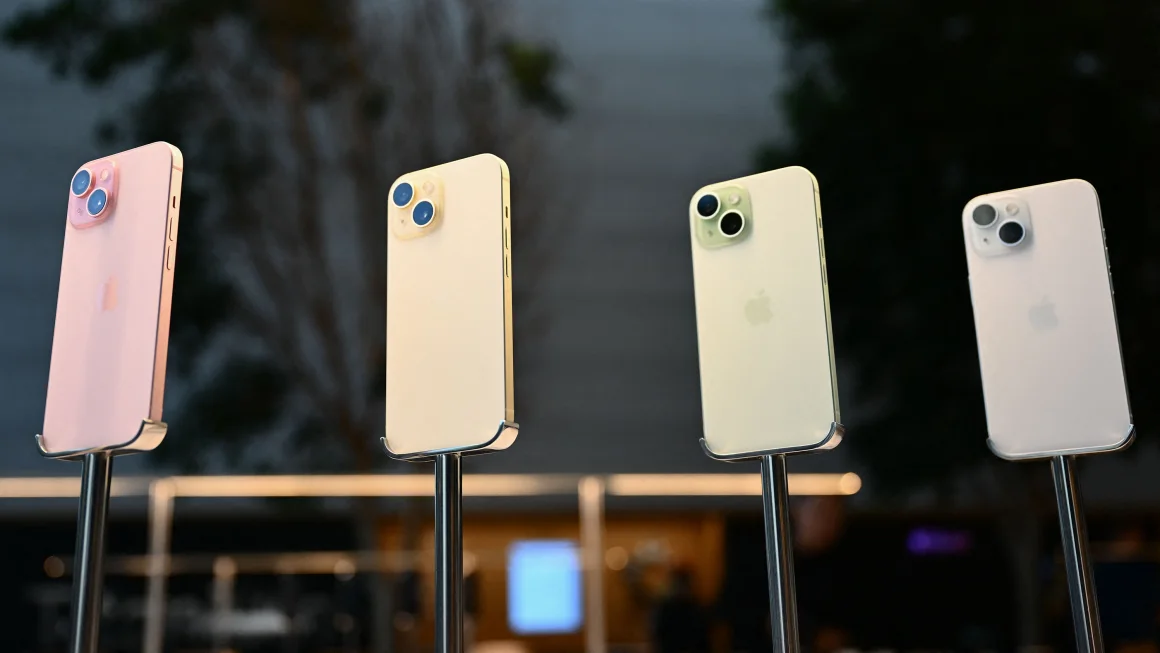
Apple Faces Crucial Moment to Revitalise iPhone Sales Amidst AI Evolution”
Apple has faced a four-year drought in compelling reasons for customers to upgrade their iPhones since introducing 5G with the iPhone 12. This trend has slowed sales growth, a critical concern for the tech giant heavily reliant on iPhone revenue. The longer upgrade cycles have been particularly challenging, exacerbated by fierce competition in China and legal battles over antitrust issues.
At its upcoming Worldwide Developer Conference, Apple plans to unveil new artificial intelligence features that could reinvigorate its products and bring it back into the competitive AI landscape. The iPhone, pivotal to Apple’s strategy, stands to benefit significantly from these advancements.
Despite ongoing challenges, Apple remains a formidable force in the tech industry, boasting substantial iPhone earnings and a resilient stock performance. Analysts stress that rejuvenating iPhone sales is vital for sustaining Apple’s growth trajectory, emphasising the need for compelling reasons to entice consumers to adopt the upcoming iPhone 16.
Investors are closely watching Apple’s ability to assert itself in the evolving AI field, especially as competitors like Nvidia and Microsoft advance their AI-powered offerings. The outcome of Apple’s strategic moves at this juncture will likely shape its standing as a technology leader moving forward
Eagerly Anticipating the AI-Enhanced iPhone
For years, Apple has quietly integrated AI into its products, enhancing user experiences in subtle yet impactful ways. Now, Apple is poised to unveil its most user-focused AI updates yet.
Expected to be announced on Monday, these updates are anticipated to include new generative AI features for iOS, particularly enhancing Siri’s capabilities. This could enable Siri to perform tasks like retrieving old photos or answering detailed queries about weather, news, or trivia. Over time, Siri could personalise responses based on user preferences and even learn their personality traits.
Drawing from trends in AI integration by competitors, Apple may also introduce additional tools such as email summarization or drafting assistance
Traditionally, Apple has prioritised delivering a premium user experience rather than being the first to introduce new technologies. Now, there’s heightened anticipation for Apple to impress consumers with features that surpass those offered by competitors like Samsung and Microsoft.
Beyond the features themselves, the main question at WWDC is which Apple devices will support these advancements: Will the new AI tools be available on older iPhones, or restricted to upcoming models launching in the fall, possibly due to hardware requirements like new chips or faster processors?
If these features are exclusive to newer devices, it could potentially drive a significant upgrade cycle for iPhones, influencing Apple’s overall performance. Analysts suggest that lacklustre features or widely available AI capabilities on older iPhones could negatively impact Apple’s stock, while compelling new technology prompting upgrades in the fall could lead to substantial gains.
The critical factor lies in whether Apple can deliver compelling innovations that encourage users to upgrade, potentially marking a pivotal moment akin to their last significant surge in upgrade activity four years ago.
Tech
Pope Francis Advocates for Church’s Role in Global AI Discussions
Published
1 month agoon
June 12, 2024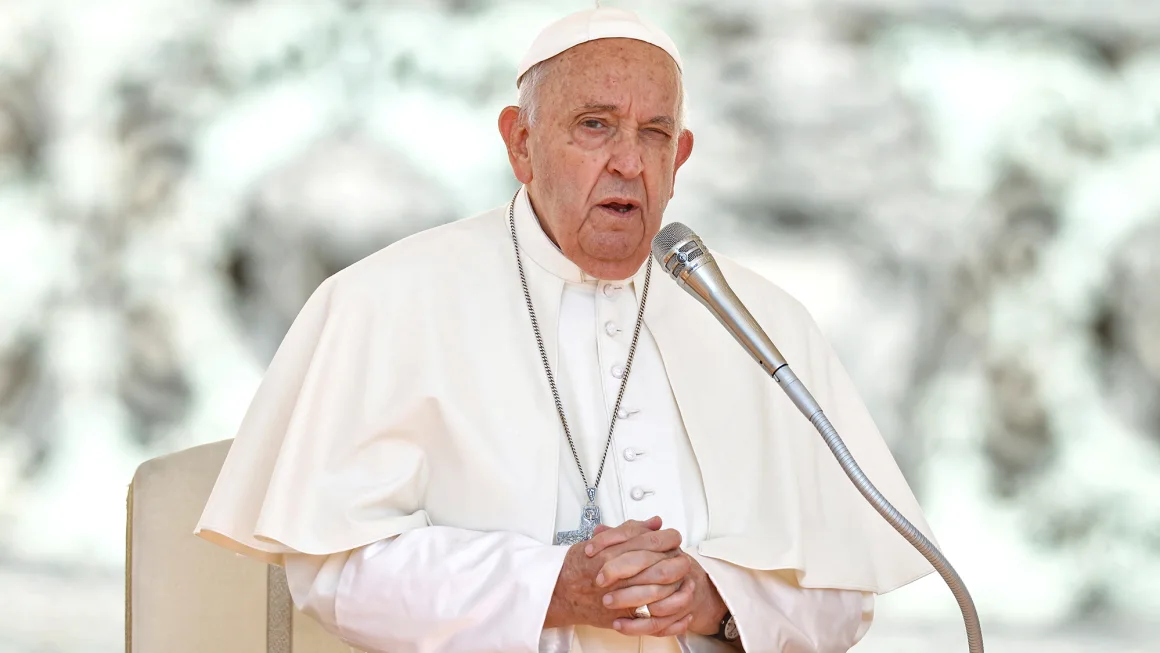
Last year, a manipulated image of Pope Francis wearing a trendy white puffer jacket caused a stir online, sparking discussions about his fashion choices and speculation about the involvement of a stylist. However, the image was revealed to be a ‘deep fake,’ generated using artificial intelligence.
This week, Pope Francis is set to address the pivotal topic of artificial intelligence at the G7 summit in southern Italy’s Puglia region. His participation marks a historic moment as he becomes the first pope to engage in discussions at this level, specifically focusing on AI during a dedicated session. Notably, US President Joe Biden, who shares a close rapport with the pontiff, is expected to attend the summit.
At 87 years old, Pope Francis is committed to leveraging the influence of his position to advocate for the ethical development of AI, emphasising its potential to benefit humanity while cautioning against the emergence of unforeseen dangers akin to a modern-day ‘Frankenstein’s monster.’
Drawing from his background in chemistry, the pope welcomes advancements in science and technology, recognizing the promising opportunities AI presents. However, he also remains vigilant about the potential serious risks it may pose.
In a recent communication, Pope Francis issued a cautionary message about the potential emergence of a ‘technological dictatorship’ if proper regulations are not established, particularly emphasising concerns regarding AI-controlled weaponry and the risk of technology being exploited for surveillance and election interference. Stressing the importance of AI serving the ‘common good’ and not exacerbating inequalities, the pontiff has advocated for an ethical framework in its development and application.
The Vatican, through its Pontifical Academy for Life, has been actively promoting the ‘Rome Call for AI Ethics,’ a set of principles including transparency, inclusion, responsibility, and impartiality. Major tech firms like Microsoft, IBM, and Cisco Systems, alongside international organisations and religious leaders, have endorsed this initiative.
At the upcoming G7 summit, Pope Francis is expected to rally global leaders towards collaborative efforts in AI regulation, echoing his previous call for an ‘international treaty’ to curb harmful AI practices. While the European Union has passed legislation in this regard, bipartisan efforts in the United States signal a growing momentum towards federal regulation.
Father Paolo Benanti, a key figure in Vatican discussions on AI, underscores the pope’s focus on the societal impacts of technology, particularly its implications for inequality and misinformation. With a global perspective, Pope Francis recognizes disparities in technology access and aims to address these issues alongside broader humanitarian challenges such as migration and climate change.
According to Archbishop Vincenzo Paglia, international regulation is crucial to effectively address the misuse and manipulation of emerging technologies like AI. The Pontifical Academy for Life’s advocacy for ethical AI aims to promote sustainable development for humanity as a whole.
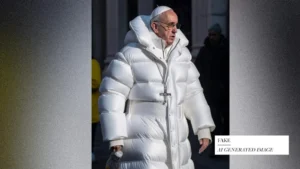
Italy, currently holding the G7 presidency, imposed a temporary ban on ChatGPT due to privacy concerns and plans to enforce penalties for AI misuse. Prime Minister Giorgia Meloni believes Pope Francis’ participation in the summit will significantly contribute to establishing an ethical and cultural framework for AI regulation. Meloni emphasises the importance of integrating ethical considerations into algorithmic development, citing the ‘Rome Call for AI Ethics’ as a pivotal step towards fostering ‘algorethics’.
Father Antonio Spadaro, a papal adviser, remarked that Pope Francis’ participation in the G7 summit reflects his commitment to engaging in meaningful dialogues where significant decisions are made. By attending the summit in Puglia, the pope aims to engage directly with policymakers, demonstrating his vision of an actively involved Church in worldly affairs.
Father Philip Larrey, an AI expert and former dean, views Pope Francis’ decision to attend the summit as unexpected yet influential. Larrey anticipates the pope’s presence will have a significant impact on the summit’s outcomes, highlighting the pope’s role as a catalyst for meaningful discussions.
Pope Francis is closely monitoring developments in AI and emerging technologies, seeking to leverage the depth of Catholic tradition to address their ethical implications. His active involvement, notably his presence at the G7 summit, underscores the urgency of his message. Francis advocates for ‘person-centred AI,’ emphasising the need for ethical considerations in technological advancement.
The infamous ‘deep fake’ incident, where an AI-generated image of the pope went viral, highlighted the potential for technology to manipulate visuals. Francis has addressed this issue, warning against the spread of false information and acknowledging his own experiences as a target of such manipulation.
Recognizing AI as a pivotal aspect of the current era’s transformation, Francis aims for the Church to play a central role in shaping discussions around its development. He believes in ensuring that new technologies serve the greater good of humanity.
Tech
Apple’s Highly Anticipated Unveiling: The Next Big Innovation
Published
2 months agoon
June 10, 2024
Apple stands at the brink of what could be one of its most pivotal moments in recent history, as it confronts a barrage of challenges on multiple fronts. The company’s annual Worldwide Developers Conference, slated to commence on Monday, is widely anticipated to herald a significant partnership with OpenAI, the creator of ChatGPT, and introduce a suite of groundbreaking generative AI tools integrated into its mobile operating system.
This strategic foray into AI holds immense potential to catalyze growth in iPhone sales and services for the foreseeable future, particularly as consumers increasingly defer device upgrades amidst economic uncertainty, compounded by lingering effects of the pandemic, particularly in markets like China. Concurrently, Apple finds itself navigating regulatory scrutiny in the United States, exacerbated by recent shifts in market dynamics that saw chip maker Nvidia surpass it as the nation’s second-largest publicly traded company.
Apple’s Chief Executive Officer, Tim Cook, hinted at the impending AI initiative during the company’s latest earnings call, underscoring its strategic significance and positioning within the broader technological landscape. While Apple traditionally adopts a cautious approach to integrating emerging technologies, the rapid proliferation of generative AI is seemingly accelerating its timeline, compelling the company to maintain its competitive edge in the smartphone market.
Anticipation is rife regarding the nomenclature of Apple’s AI endeavor, rumored to be christened “Apple Intelligence” and set to be accessible exclusively on select devices such as the iPhone 15 Pro or those equipped with an M1 chip or newer iterations. Speculation abounds regarding the potential enhancements AI could bring to Siri, Apple’s virtual assistant, by leveraging OpenAI’s latest ChatGPT-4o model to imbue it with advanced conversational capabilities akin to those of a chatbot.
Beyond Siri, generative AI holds promise for revolutionizing various facets of Apple’s ecosystem, potentially augmenting user experiences across core applications like Apple Maps, iMovie, and iPhoto. Analysts anticipate Apple’s unveiling to spotlight on-device AI’s manifold benefits, emphasizing its seamless integration into daily routines while elucidating the company’s long-term vision for AI-driven innovation.
Crucially, Apple’s purported collaboration with OpenAI could be pivotal in shaping its AI trajectory, representing a concerted effort to harness external expertise in advancing its technological prowess. However, such partnerships entail inherent risks, potentially impinging on Apple’s autonomy in product development and its unwavering commitment to data privacy and security.
As Apple embarks on this transformative journey into AI, it remains steadfast in its commitment to consumer privacy and security, underscoring the imperative of responsible AI deployment amidst mounting concerns over its ethical implications. Moreover, the company is expected to provide updates on its Vision Pro mixed reality headset, positioning AI as a cornerstone of its immersive experiences strategy aimed at unlocking new frontiers in enterprise adoption.
Ultimately, Apple’s bold foray into generative AI underscores its unwavering commitment to innovation, poised to redefine the future of human-computer interaction while navigating the complex interplay of technological advancement and societal impact.
Trending
-

 Entertainment3 years ago
Entertainment3 years agoEva Savagiou Finally Breaks Her Silence About Online Bullying On TikTok
-

 Entertainment2 years ago
Entertainment2 years agoTraumatone Returns With A New EP – Hereafter
-

 Entertainment2 years ago
Entertainment2 years agoTop 5 Influencers Accounts To Watch In 2022
-

 Fashion3 years ago
Fashion3 years agoNatalie Schramboeck – Influencing People Through A Cultural Touch
-

 Fashion3 years ago
Fashion3 years agoThe Tattoo Heretic: Kirby van Beek’s Idea Of Shadow And Bone
-

 Entertainment3 years ago
Entertainment3 years agoTop 12 Rising Artists To Watch In 2021
-

 Entertainment3 years ago
Entertainment3 years agoMadison Morton Is Swooning The World Through Her Soul-stirring Music
-

 Entertainment3 years ago
Entertainment3 years agoTop 10 Influencers To Follow This 2021
-

 Entertainment3 years ago
Entertainment3 years agoBrooke Casey Inspiring People Through Her Message With Music
-

 Entertainment3 years ago
Entertainment3 years agoFiery, Electric, And Tenacious. Leah Martin-Brown’s All That
